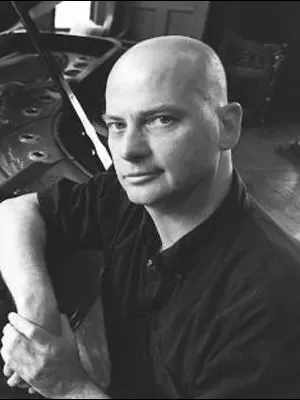Tom Cipullo
Composer
Born: 1956
Place of Birth: New York
Hailed by the American Academy of Art & Letters for music that displays "inexhaustible imagination, wit, expressive range and originality," composer Tom Cipullo's works are performed regularly throughout the United States and with increasing frequency internationally. The winner of a 2012 Guggenheim Fellowship, the 2013 Sylvia Goldstein Award from Copland House, and the 2013 Arts & Letters Award from the American Academy, Mr. Cipullo has received commissions from the Mirror Visions Ensemble, SongFest at Pepperdine, the Joy in Singing, Sequitur, Cantori New York, tenor Paul Sperry, mezzo-soprano Mary Ann Hart, the Five Boroughs Music Festival, pianist Jeanne Golan, soprano Martha Guth, the Walt Whitman Project, baritone Jesse Blumberg, the Cecilia Chorus, Music of Remembrance, and many others. He has received awards and fellowships from Yaddo, the MacDowell Colony, the Virginia Center for the Creative Arts, Copland House, the Liguria Study Center (Bogliasco, Italy), the Fundacion Valparaiso (Spain), the Oberpfaelzer Kuenstlerhaus (Bavaria), ASCAP, Meet the Composer, and the Jory Copying Program. The New York Times has called his music "haunting," and The Boston Globe remarked that his work "literally sparkled with wit." The Pittsburgh Post-Gazette has called him "an expert in writing for the voice." Recent honors include the Minneapolis Pops New Orchestral Repertoire Award (2009) for Sparkler, the National Association of Teachers of Singing Art Song Award (2008) for the song-cycle Of a Certain Age (commissioned by the soprano Hope Hudson), the Aaron Copland Award from Copland House (2007), and the Phyllis Wattis Prize for song composition from the San Francisco Song Festival for Drifts & Shadows (2006).
Music of Remembrance has commissioned Mr. Cipullo’s chamber opera, After Life, as part of the organization’s continuing commitment to remembering the Holocaust through new music that challenges audiences to re-examine conventional perspectives. In the opera, Picasso and Stein meet again in a posthumous debate filled with both passion and humor. They argue over the moral responsibilities of artists to address the evil they see in the world. They confront each others’ weaknesses, and their own, in succumbing to vanity and ego.
Mr. Cipullo has been drawn before to artistic themes that pose difficult moral questions. His highly-regarded 2006 opera, Glory Denied, tells the story of America’s longest-held Vietnam prisoner of war Jim Thompson. Allan Kozinn wrote in the New York Times: "How is this for a story with operatic potential? A prisoner of war held for nearly a decade returns home to find that his wife has moved on, his nation has changed beyond recognition, and he is unable to find his bearings in the society he fought to defend. It is Monteverdi's ‘Ritorno d'Ulisse in Patria’ in reverse: the story of the returning warrior, but in this thoroughly modern version, everything has gone wrong, and redemption is out of reach.” Anne Midgette, in the New York Times, described the work’s lyrical richness: "It is tonal, melting into aching lushness…propelled by driving Bernstein-like syncopations where different versions of the same truth converge."
For After Life, Cipullo has collaborated with librettist David Mason.